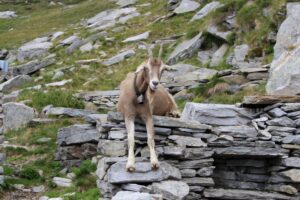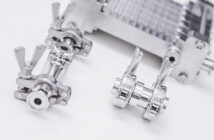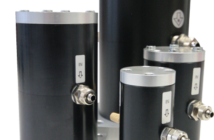A research project has led to PM-1 testing being used to determine and select dairy goats which can produce up to 20% more milk for the manufacture of premium infant formula – one of New Zealand’s highest-value export products.
The project, spearheaded by the shareholders of New Zealand’s Dairy Goat Co-operative, has been selected as a finalist for the KiwiNet Research Commercialisation Awards, which celebrates practical use of science through research commercialisation within New Zealand’s universities, Crown Research Institutes and other research organisations.
With co-funding from MBIE, Dairy Goat Co-operative has partnered with scientists from Auckland and Massey universities to conduct the first large-scale screen to characterise the genetic profile of New Zealand’s dairy goats.
University of Auckland’s school of biological sciences professor Russell Snell and associate professor Klaus Lehnert say they were pleased with the findings and how quickly they became results outside the lab.
“It’s had a massive effect from a genetic perspective. It’s led to a 10% or greater increase of all goat milk production across the country. It amazed us,” says Snell.
After discovering a genetic variant responsible for a major increase in milk productivity, the partners re-focused the project’s strategy to secure IP freedom to operate and rapidly deploy the discovery. A low-cost commercial DNA test was developed with New Zealand service company GenomNZ.
Lehnert says part of the commercialisation was developing a commercially executable test and taking the research out of the laboratory.
“Everything is possible in a research laboratory except that it costs a lot of money and usually takes a lot of time. But by taking this to a commercial testing company, you can execute these tests on a grand scale, quickly and reliably. This is the heart of commercialisation and was originally meant to happen after the research phase, but we decided to do this parallel to more research,” he says.
“We developed the test during the research phase so we could get it out into the farmers hands as early as possible. This is the second year of roll-out and we can already see the results.”
The research also has sustainability implications says Snell.
“What’s great about it is [farmers]don’t need any more animals. The carbon footprint hasn’t changed one iota, so more for less.”
The project has led to more research and Snell and Lehnert are now looking for other characteristics that may add value to the Dairy Goat Co-operative.
“They liked what we did and they want us to do more of it. They are a marvellous organisation to work with. They are what New Zealand should be doing – taking primary produce and turning it into high value products,” says Snell.





























































































